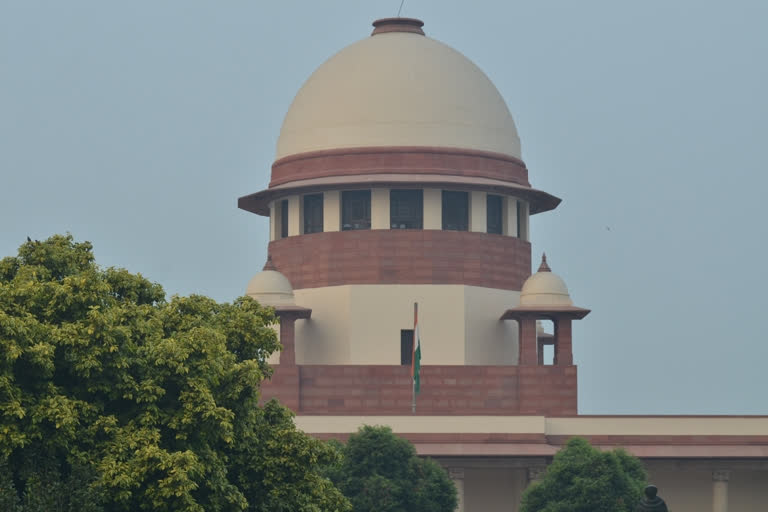New Delhi:The Supreme Court on Tuesday observed orally it was difficult to accept the Centre's submission that the concept of federalism does not apply to a union territory as even panchayats' are an example for decentralisation of power. A five-judge Constitution bench headed by Chief Justice DY Chandrachud, which continued the hearing for a fourth day on the vexatious Centre-Delhi government row over control of services, was told by Solicitor General Tushar Mehta, appearing for the central government, a crafted perception has been created that the Delhi government has no powers.
The law officer said, My fundamental submissions are that we cannot lose sight of the fact that we are dealing with the capital of the nation and the central government has a huge part to play in its administration. He said services and the control over them are not applicable to union territories (UTs) at all.
"The union territory represents and is the extension of the Union and hence, there is no concept of federalism between the Union and its extended area, he said. It may be difficult to accept your (Centre's) submission that federalism only applies to states and the Union. There may be a different degree of federalism between UTs and Union. It may not have all features of federalism but may have some, orally observed the bench which also comprised Justices M R Shah, Krishna Murari, Hima Kohli and P S Narasimha.
The concept of federalism, the bench said, was prevalent even in panchayats. Some characteristics of federalism are prevalent even in relations with UTs. Even in panchayats', the concept of federalism is reflective of the need of the local government, decentralisation of power, the bench said.
Referring to the constitutional and legal provisions, the solicitor general said those who are working for the affairs of the government of the national capital are working for the Centre and, moreover, India is a quasi federal State. At the fag end of the hearing, the bench specifically asked senior advocate A M Singhvi, appearing for the Aam Aadmi Party (AAP) government, as to what the Delhi government wanted from this court.
I am seeking what is rightfully mine, my legislative rights in Entry 41 (State public services; State Public Service Commission) of the State list. I seek all my legislative rights under all entries of the State list minus three entries (Public order, Police and Land), he said. Singhvi also said he was seeking all executive powers in relation to the entries under the State List where the Delhi legislative assembly is capable of making laws.
He said the Delhi government wanted clarity on the issue of control of services in the national capital as even this court would not like the dispute to recur. At the outset, the solicitor general raised the issue of the ongoing protest by AAP MLAs led by Chief Minister Arvind Kejriwal against the alleged interference by the lieutenant governor's office in the Delhi government's works and termed them "undesirable".
Let me demolish the crafted perception that we (Delhi government) have no power," the law officer said. He referred to the power of the chief minister to assess the performance of IAS and other officers by writing their annual performance report. He said, moreover, from 1992 till date, everything has worked out well between the Delhi government and Centre with political maturity.
"Delhi is indisputably not a state, he asserted, adding the President has already delegated all the powers related to the services to the administrator that is LG. Parliament very consciously omitted any separate service for UT from Part 14 (of the Constitution), Mehta said. When the law officer said a UT cannot have its own public service commission, the bench pointed out the Union Territory of Jammu and Kashmir has a state public service commission.
There was a public service commission in Jammu and Kashmir. They were bifurcated in two and Parliament wanted to continue with the public service commission..., the law officer said, adding the Centre can provide a service commission to a UT under Entry 41 of the State list.
